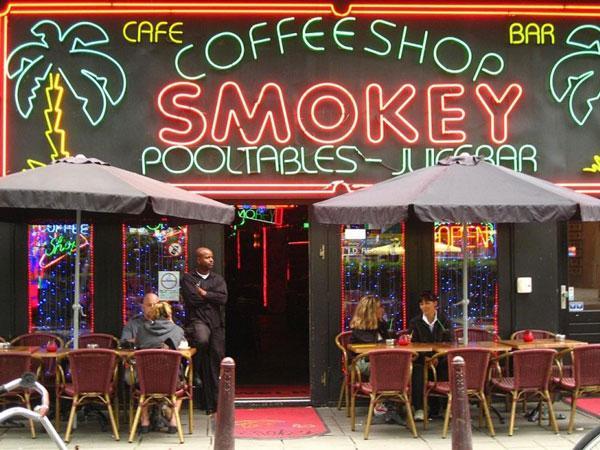AMSTERDAM — After 14 weeks as a correspondent columnist living in Amsterdam, here’s the opinion you’ve been waiting or dreading to hear.
Marijuana use should be tolerated throughout the U.S.
If you’re concerned that time in the socially liberal Netherlands has warped my perceptions, note that the majority of Americans agree that marijuana should be legalized, according to a Gallup poll released last month.
Support rose to 58 percent, 10 percentage points higher than last year. If you’re one of my parents’ friends who smirked when you heard where I would be studying, know that I’m assuming you’re included in these numbers.
All eyes are on Washington and Colorado, where recreational use of marijuana was legalized and is now being regulated.
But my sights are set a little differently. I’ve been watching how Amsterdam’s tolerant pot policy works, what it means to the Dutch locals and how the exchange students here respond to their newfound freedom to smoke weed openly.
Recreational marijuana use is not technically legal in the Netherlands, but the Dutch have a policy of toleration that allows certain places, called coffee shops, to sell cannabis under strict regulation. A person can possess up to 5 grams of cannabis in public.
Each city decides its own policy toward recreational drugs, and some, such as Maastricht, use a weed pass system that grants the sale of marijuana to residents only. It seems unlikely that such as system will ever be enforced in Amsterdam.
Most important to note is that the decriminalization of marijuana allows policy makers and law enforcement officials to focus on violent crimes — of which there are few — and more relevant threats to public safety and well-being.
In Louisiana, there were 16,104 arrests in 2011 for drug abuse violations, according to a report by The Louisiana Statistical Analysis Center and the Louisiana Uniform Crime Reporting Program.
According to the National Institute of Corrections, Louisiana incarcerated 867 adults per 100,000 people in 2010. The Netherlands incarcerated 82 people per 100,000 in 2011.
Marijuana regulation and taxation also generate millions of euros in revenue for the Dutch government every year. Though recent figures are difficult to find, in 2008 The Telegraph reported the Dutch government received £315 million in taxes on 265,000 kg of soft drugs.
Surely we could use that money to improve the state’s pathetic public transit system, support TOPS funding or at least fill a few potholes.
The locals in Amsterdam seem indifferent to the marijuana present in the city, and a few Dutch students I’ve met have never even been to a coffee shop. No one is surprised or alarmed at the smell of pot in public or at an open-air concert. It’s an easy joke to assume spaced-out tourists, erratic cyclists and lazy people are just high — nothing to worry about.
There are hundreds of students who’ve lived here for months and have no interest in ever getting high. The availability of marijuana does not lead to an automatic seduction, corruption or the use of more dangerous drugs.
I can confidently say the international students who smoke weed regularly here were regular smokers before they ever landed on Dutch grass. If I just wanted to smoke, I didn’t have to travel nearly 5,000 miles to do it. So you can stop wagging your eyebrows at me. Please.
Despite conservative policy, the anti-weed initiatives and the threat of legal action, people are smoking pot in America, regardless of its legal status. And popular opinion appears to be pretty OK with people smoking pot in America.
As a resident of a marijuana-tolerant city, I have not personally witnessed any negative societal effects of the decriminalization of soft drugs.
The U.S. should continue down the path toward legalization, if only so people will stop judging Americans headed to Amsterdam.
Morgan Searles is a 21-year-old mass communication senior studying abroad in Amsterdam.
Opinion: Marijuana tolerance has positive influence on society
November 26, 2013





